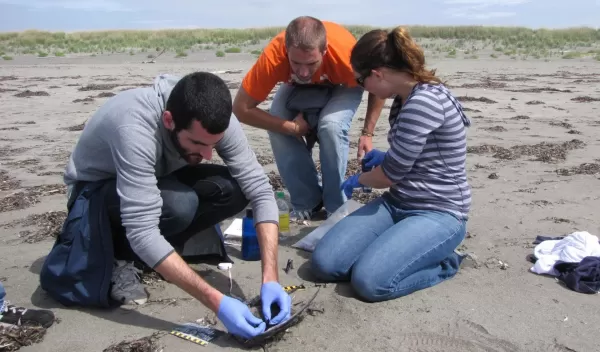
What motivates people to join -- and stick with -- citizen science projects?
From searching for extraterrestrial life to tracking rainfall, non-experts are increasingly helping gather information to answer scientific questions. A hands-on, outdoor citizen science project, the University of Washington-based Coastal Observation and Seabird Survey Team, COASST, trains beachgoers along the West Coast to monitor their local beaches for dead birds.
With about 4,500 participants in its 21-year history and roughly 800 active participants today, COASST's long-term success is now the subject of scientific study. What makes people join citizen science projects, and what motivates people to stick with them over years?
A paper published in the July issue of Ecology and Society explores the interests and identities of participants who join and remain active in citizen science. Results could help other science projects harness the power of large teams.
Years of responses to surveys of COASST's recruitment and engagement efforts provide a unique window on citizen science.
The analysis shows that new participants wanted to be outdoors on the beach, learning about birds. Some listed their scientific degrees, previous occupations and birding expertise.
Responses from longer-term contributors displayed a slightly different pattern. Although birds and beaches remained dominant interests, seasoned volunteers were more likely to mention their desire to monitor and observe beaches and help make scientific discoveries, and to cite the importance of project data and results for environmental conservation.
The research is funded by NSF's Directorate for Education and Human Resources.
